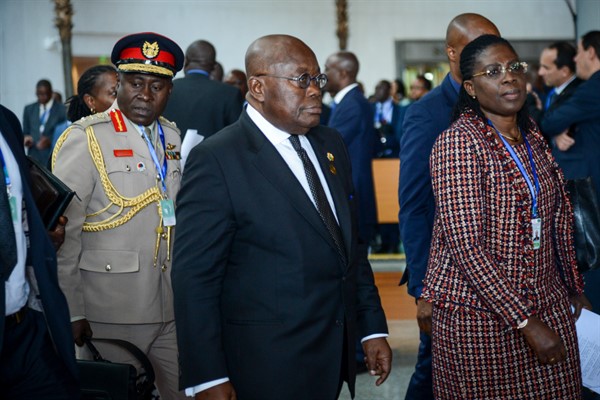Since taking office in 2017, Ghanaian President Nana Akufo-Addo has demonstrated a pattern of heavy-handedness, authoritarianism and impunity that belies his carefully crafted global image of a debonair and progressive African leader. The latest controversy involves a bill, supported by members of Akufo-Addo’s administration and key religious institutions in the country, that would criminalize displays of same-sex affection and advocacy for LGBTQ rights, punishable by up to a decade in prison. Ghana has long had a mixed record on protecting LGBTQ rights, but for much of the past four years in particular, LGBTQ Ghanaians—as well as their allies and advocates—have faced a chilling crackdown.
The draft anti-LGBTQ law is only part of a broader erosion of rights and freedoms in a country that is often portrayed as a rare democratic “success story” in West Africa. In 2018, Akufo-Addo fired the head of the electoral commission, Charlotte Osei, and replaced her with a reputed sympathizer of the ruling New Patriotic Party, or NPP. The dismissal, reportedly on grounds of financial malfeasance, drew condemnation from Ghanaian civil society groups, as the position had long been viewed as nonpartisan and Osei was a respected elections expert.
Then, in the run-up to the 2020 presidential election, the government deployed the army to the eastern Volta region, ostensibly as a coronavirus mitigation measure and to stop migrants from neighboring Togo from crossing the border. One NPP lawmaker even called the deployment a “peacekeeping force” that was required to prevent foreigners from voting in the elections.

